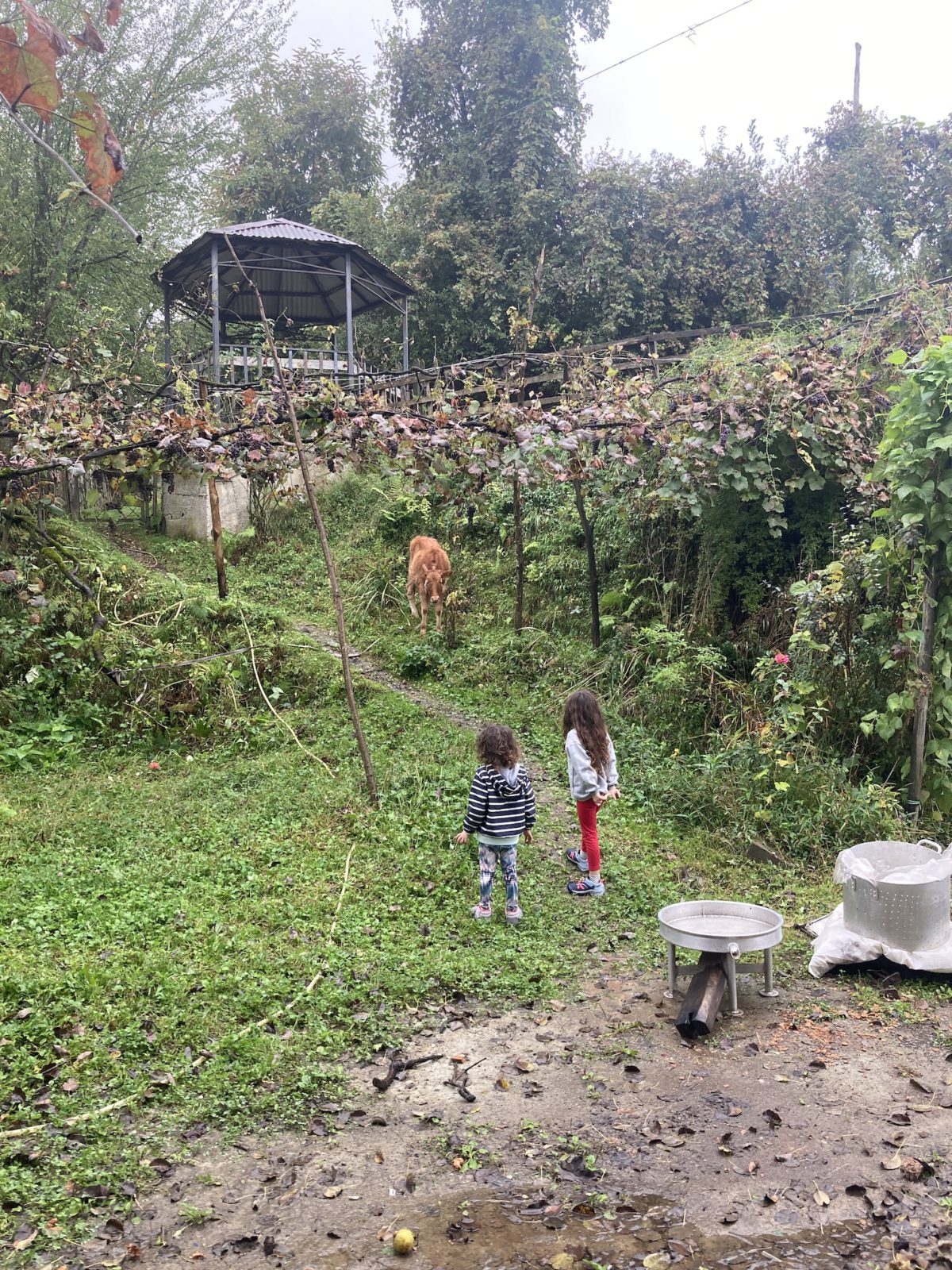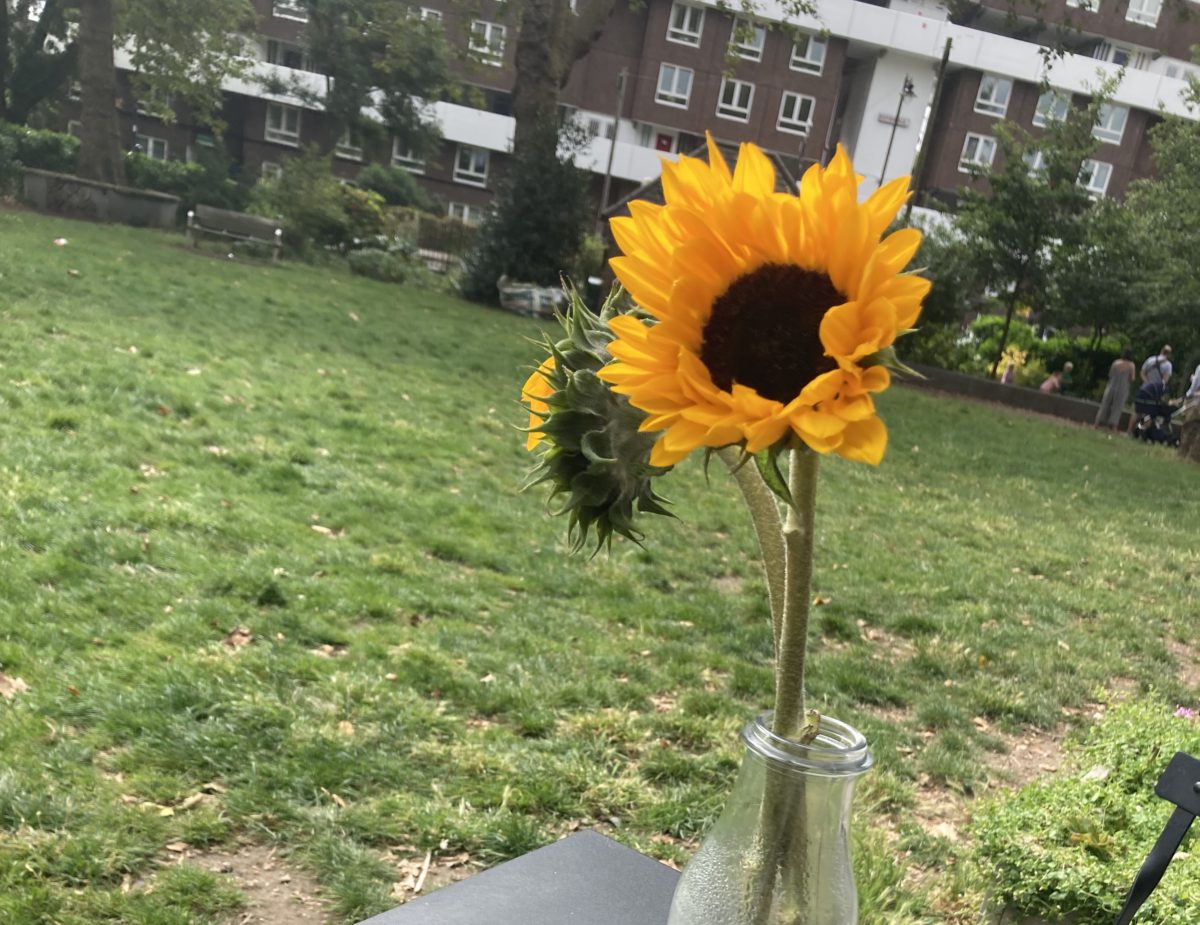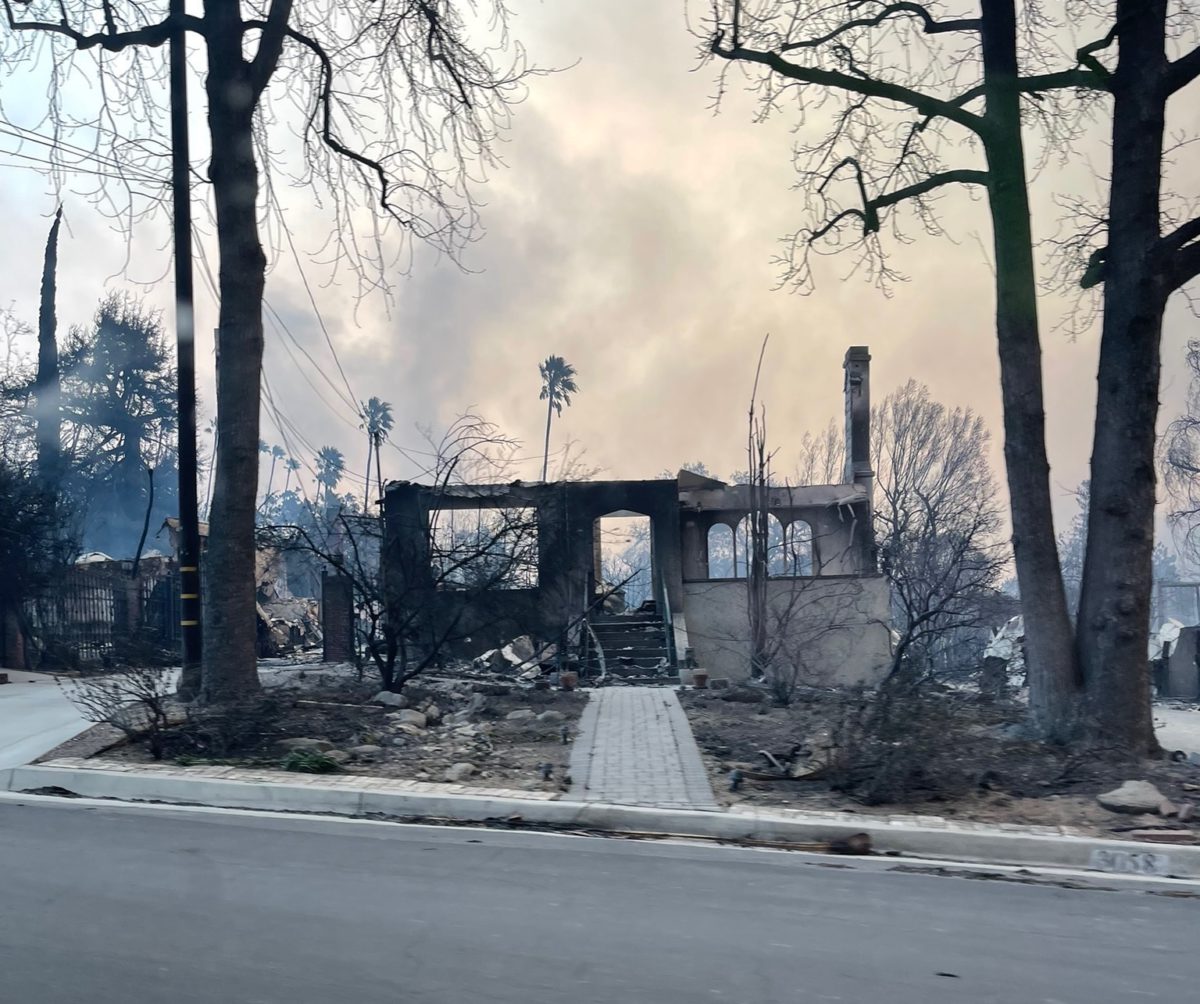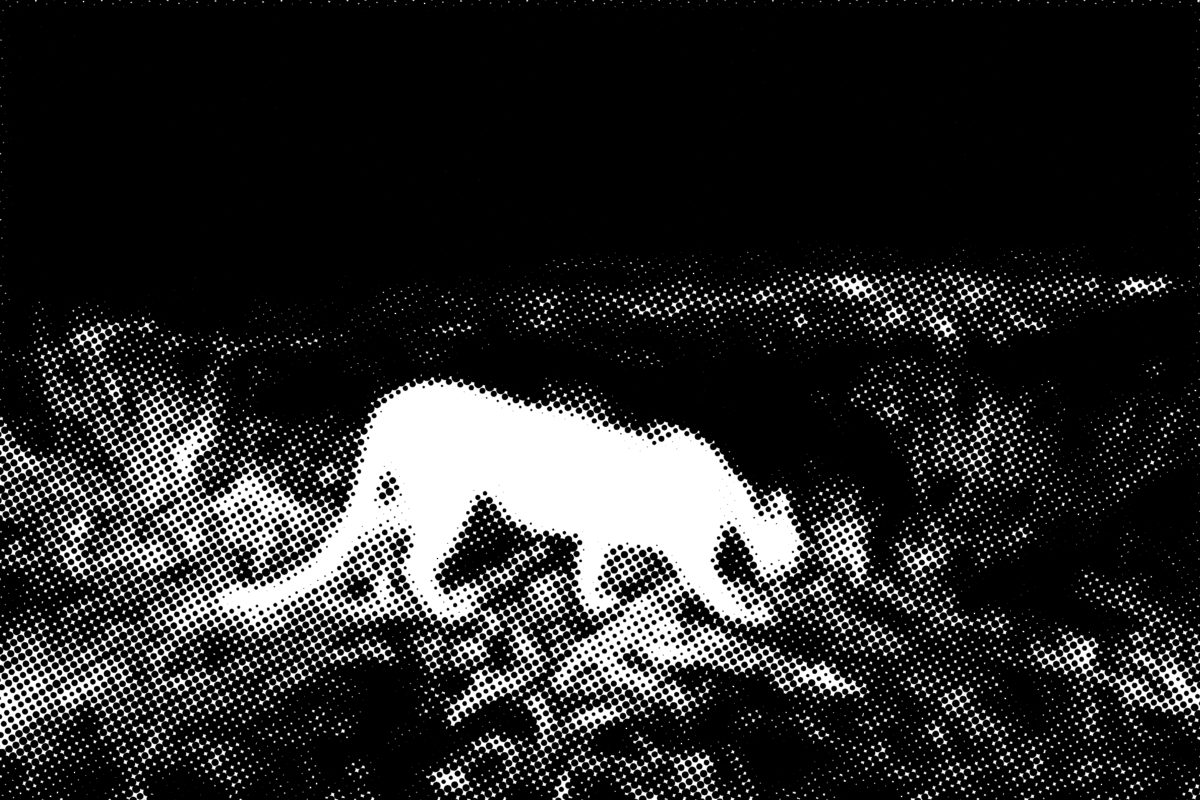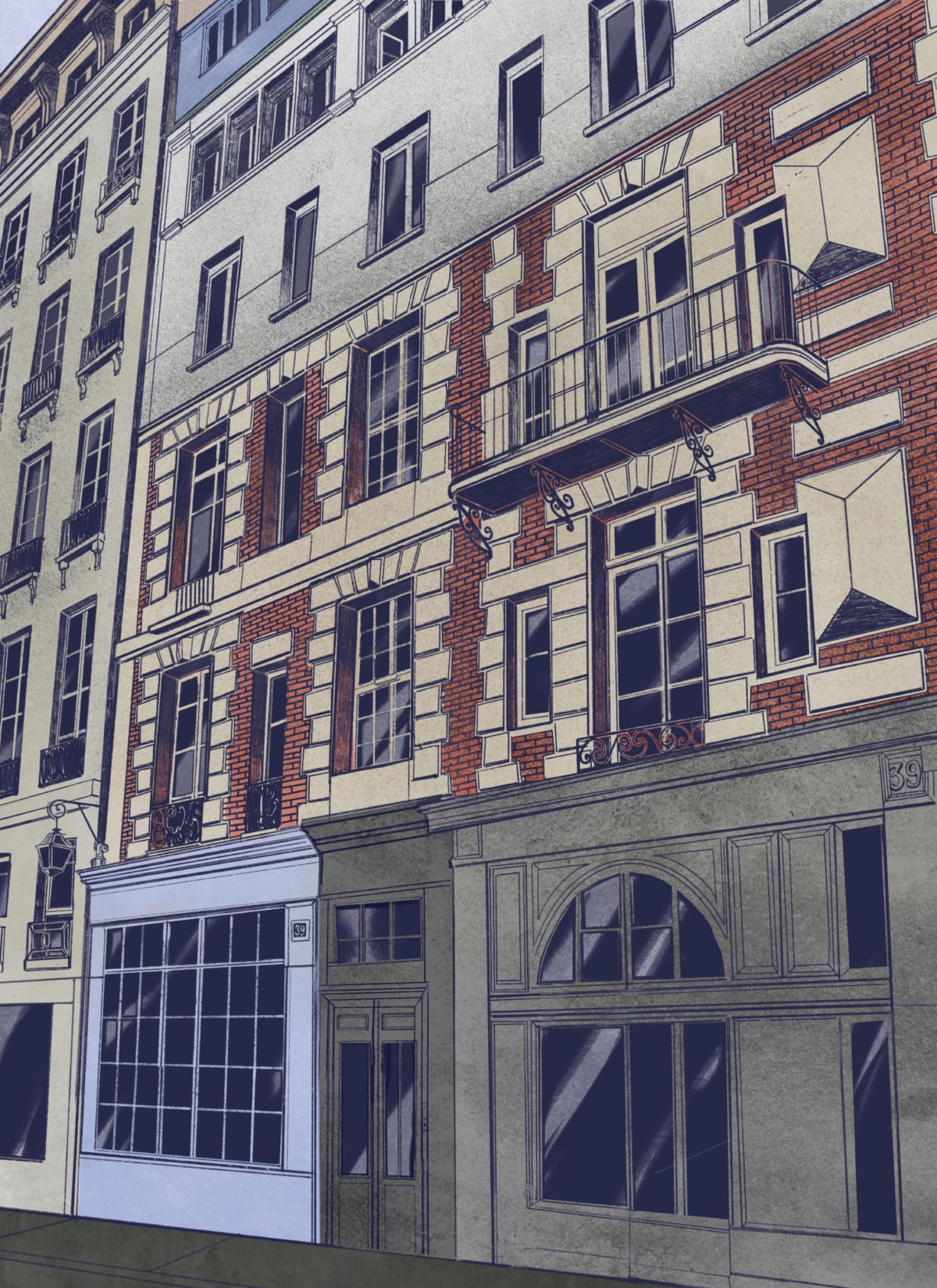
Two years ago, returning to Paris after a brief summer jaunt down south and with still no work lined up (I’m a translator/interpreter), I took my wife Emma out to lunch only to see my card declined.
Here I am, I thought, no longer a young man, with two small children and a negative balance in my bank account. The idea of being a failure in the eyes of my children was unbearable. I could no longer hang out in our tiny kitchen doing lame James Brown imitations while waiting for work to appear. I had to act.
I thought: I am resourceful. I am, after all, American. I went online.
A few hours later I had an interview set up the next day with Big Bus Tours—the world’s largest open-top bus sightseeing company was looking to hire and train English-language guides for bus tours around Paris. I would be meeting a woman called Maribel.
The interview went well, and I memorized 40 pages of material over the weekend, determined to ace the upcoming training period. First I was sent on a tour with one of Big Bus’s top guides, Marie, to get an idea of what would be expected of me. Even after thirty years here (I am a Paris lifer), the tour with Marie bowled me over. For the first time in my life, I gazed down and around at my city from on high, gawking and laughing and loving every minute of it. Marie was petite, charming, French, with pale green eyes; her English was valiant, and her warmth as she worked the mic, walking up and down the aisle of the exposed upper deck handing out earbuds and patiently answering questions, was natural, unfeigned. I fell under her spell and found myself closing my eyes, basking in the sun like a lizard, thinking I can do this, as if it were some esthetic privilege and pursuit and not merely a minimum-wage job.
I was hired, and within a week was working full-time. Each tour lasted two hours and change. I did three tours daily, five days a week.
There were about fifteen guides at Big Bus Tours, and the company rewarded us with a ten-euro bonus for each five-star review we got on Tripadvisor. The mesmerizing Derrick, a diminutive caramel-colored Dutchman, was #1; his weekly five-star review tally was staggering. Marie was #2. I came up with a moniker I thought was a surefire winner—5-Star Phil—and was soon coming in third.
I got along with everyone at Big Bus Tours, especially the drivers, whose warmth and humor I cherished. The drivers were exclusively Arab, or Black (and all men, save three women), and 95% Muslim (full disclosure: I am a balding middle-aged semi-Jewish atheist white guy idiomatically fluent in French and English).
Downstairs at the shop where the drivers had a toilet, a makeshift kitchen, a table and some armchairs, the prayer mat was in constant use. I shared with my drivers the raisins, nuts and bananas I carried in my fanny pack, and my tips, too—exactly half. My first day on the job, staring amazed at the change in his palm, Abdel said:
Where are you from, man?
I’m French, of course.
He arched an eyebrow. No you’re not.
Why?
A French person never gives anything away. Especially to an Arab!
Okay, I said. I’m also American.
Ah! That explains it!
The weather was inordinately, stunningly sunny, and despite copious amounts of sunscreen I was soon sporting the kind of tan I had as a kid in eastern North Carolina. My daughter, Nina, six, was tickled pink. For once, one of her parents left the house in the morning to go to work, like normal parents do; and, icing on the cake, I did it in uniform. Sporting my red and gold cap, jacket, shirt and plastic name tag, I bounded down the stairs every morning before hopping on my 1985 Schwinn Super Le Tour and cycling to Avenue de l’Opéra… I loved going to work, I loved my job, I loved the camaraderie; and I loved riding home at night. Seldom had I been so happy.
One year later, on one of the last warm days of the season, I was embarking on a tour with Ahmed, one of my favorite drivers, a bloke my age (fifties) with a busted nose, a cigarette habit and warm, witty eyes. We had gone through and around the Louvre when the bus suddenly jerked to a stop in the middle of the Quai du Louvre, about 200 feet from the Pont-Neuf. I rushed downstairs just as an angry young Black man, whose car had also stopped in the middle of the road, ran toward the entrance of our bus, obviously intending to lavish bodily harm on Ahmed.
Ahmed had already leapt from his driver’s seat and assumed a boxing stance. I stepped between them, yelling:
HEY GUYS! YOU BOTH HAVE KIDS, RIGHT? COME ON! THIS IS BULLSHIT!
Both guys were yelling; I was yelling; car horns were blaring. To lay a hand on my driver that man was going to have to go through me.
The hand of a fellow motorist landed on the young Black man’s shoulder and wrenched him back to his car. As he was being led away, he twisted toward Ahmed and roared:
Eat shit, you Arab fuck!
The building had been in the family since the 18th century. Abraham Breguet, watchmaker to the king, inventor of the automatic winding mechanism and ancestor of Catherine’s, had lived and worked there.
A few years back I published a novel in French about the boxer Jack Johnson. Although its publication was met with pretty much deafening silence, it did catch the eye of a friend of mine, a freelance editor who fresh on the heels of success with Gaël Faye’s Small Country was looking for new projects. Her name is Catherine Nabokov. She asked if I had something else in the works. I told her I had. I pitched it to her and she liked it. I was stoked.
Winter was approaching, and we had fewer clients at Big Bus Tours, so I began bringing my computer and working on my novel on the bus as the blurred and scrambled city skidded by my window, icy winds rocketing up and down the stairs. I huddled in layers.
Catherine’s aged parents lived on the tip of the Île de la Cité, in a 17th-century apartment building with a balcony I saw thrice daily on my Big Bus trips over the Pont-Neuf (which is not, as some might think, bridge number nine, hahaha, quoth 5-Star-Phil, ever the jokester). Catherine’s mother had grown up there. The building had been in the family since the 18th century. Abraham Breguet, watchmaker to the king, inventor of the automatic winding mechanism and ancestor of Catherine’s, had lived and worked there.
Though American, Catherine’s father, Ivan, was, in the 1980s and ‘90s, a famous foreign-language editor in France, where he published Stephen King, Mary Higgins Clark, Nadine Gordimer, Salman Rushdie, Toni Morrison, Donna Tartt, V. S. Naipaul, and William Gaddis—among many others. In all, eight Nobel Prize winners passed through his hands. He was also known in the business as a charming man with poor eyesight who made light of his handicap and was always cracking jokes, and always kind and witty and wise.
One day Catherine told me that Les Escales (a Parisian publishing house) was looking for someone to pen her father’s memoirs in French. The search was not going well. Ivan was finicky. Would I like to meet him and discuss the book with him?
I was now working part-time at Big Bus Tours, and doing simultaneous translation work for marketing research companies, and working on my novel (and doing lame James Brown imitations in the kitchen). Needless to say, the idea of penning a Nabokovian memoir was appealing, and I agreed to meet with Ivan. Meanwhile, from my perch on the bus, after passing by the building where Ivan lives, I would tell my joke to the tourists about the seagull perched upon the head of the equestrian statue of Henri IV in the middle of the Pont-Neuf:
I’ve noticed it’s always the same seagull; sometimes you can see him chase the other birds away so he can keep his spot… And so, after much thought I have come to the conclusion that this is a bird that wants to get a head in life!
As I was leaving I walked to the balcony, looked out at the Pont-Neuf and saw a Big Bus crossing the bridge. And I wasn’t on it.
The day I met Ivan I was calm, since no matter what happened, at least I would have visited a publishing legend in a fabled building in a fabled part of my fabled city, and that was something.
Vladimir Nabokov’s writing bowled me over as a young man, and Ivan’s father Nicolas was his cousin. That was all I knew about him. So before going to meet Ivan, I went online. It turned out Nicolas was a talented composer and inveterate quadrilingual charmer five times married; and most famously, director in the 1950s and ‘60s of the Congress for Cultural Freedom, or CCF, which it was later revealed had been secretly funded by the CIA.
Now, as I sat before Ivan in his high-ceilinged office, with paintings by Jacques-Émile Blanche and a wall of books I attempted not to ogle (not that he would have noticed, being almost completely blind), it was clear he had decided I was not up to snuff. He had just spent over an hour talking at me, bouncing off his own riffs (when I worked for Louis-Dreyfus in the barter trade Bill Klein and I went bowling in Brooklyn once…), digressing and digressing and barely responding to my attempts at conversation. Things were going so badly I smiled, amused by my own credulity: how could I have thought for one instant that an old man as grand as Ivan Nabokov would choose me to write his memoirs?
But Ivan is 88, and though his memory is staggering, he does forget the odd name. He was presently grasping for a pianist; around his age, Ivan said, wonderful in Schubert, Beethoven, Mozart.
Alfred Brendel, I said.
Yes. Alfred Brendel. Which is interesting, Ivan went on, because there are three pianists, born eleven years apart — all major pianists who all three share the same birthday: January 20. And Alfred Brendel, Ivan told me, is in the middle.
Alfred Brendel, I knew, was born in 1931.
1920, I said. Arturo Benedetti-Michelangeli.
Yes, said Ivan.
Now, eleven years in the other direction. 1942. Maurizio Pollini, I said.
Yes!
Something happened, and three hours later I was still there, sipping bourbon with him and with Claude, his wife; I even stayed for dinner. As I was leaving I walked to the balcony, looked out at the Pont-Neuf and saw a Big Bus crossing the bridge. And I wasn’t on it.
Before long I had a contract, and a book to write, and a budding friendship, and in the coming months I got to know Ivan Nabokov as well as I have ever known anyone. I found, read and transcribed hundreds of letters spanning seven decades; interviewed dozens of people in person and on the phone; traveled to Caen to explore the archives of the IMEC… Ivan told me about being raised poor in a rent-controlled apartment on New York City’s Upper East Side by a Russian princess mother who worked as a saleslady for milliners and fashion designers; and how Ivan disappointed her by not learning Russian, and later by renouncing the faith (his mother was a devoutly Orthodox Christian)… seeing Citizen Kane at MoMA in the forties… and Moondog performing on 6th Avenue in Viking attire… and taking the subway by his lonesome all over New York in the ‘40s, going to the Staten Island Zoo, the Bronx Zoo, the Horn & Hardart Automat, the Laff Movie Theatre on 42nd Street… and hanging out with Vladimir, Véra and Dmitri… and Edmund Wilson… and going to Harvard where he won the Bowdoin Prize and was Harry Levin’s graduate assistant, correcting John Updike’s essays on Shakespeare…
…The premieres of Balanchine ballets were a regular treat throughout Ivan’s childhood and adolescence. In 1948, Orpheus made an especially vivid impression, with sparse music by Stravinsky (both Balanchine and Stravinsky were family friends) and hypnotic sets by Noguchi.
Afterwards there was a party, and one of the dancers, eyeing the 16-year-old Ivan, asked his mother:
Is he gay?
Ivan’s mother was quick to reply:
Oh yes, absolutely! That boy doesn’t have a serious bone in his body!
After having seen Ivan become furious (and he is nothing if not good-natured) at the characterization of his father in a book as a good-time Johnny who didn’t give a shit about art and music and had used the CCF and its CIA funding (which Nicolas subsequently professed to have been ignorant of) for the most egregious reasons, I was relieved, one day, to hear him say:
I think he knew.
A few weeks later, when I arrived at Ivan’s he told me he had found a title for our book:
Nov Shmoz Ka Pop, he said.
Ivan is a repository of jingles and couplets and rhymes and bits of aural or visual flotsam from the past, and Nov Shmoz Ka Pop came from a recurring character in Gene Ahern’s Our Boarding House, a comic strip from the 1920s and ‘30s in which a battered-looking bearded dude attempts over and over to hitch a ride by sticking his thumb out and uttering that nonsensical phrase.
Ivan was delighted with the title, which appeals to his love of the absurd.
Do you think our publisher will go for it? he wondered.
In France, Zadie Smith’s White Teeth was called Sourires de loup (Smiles of a Wolf, or Wolf Smiles. Wolves are nowhere mentioned in the book, whereas the words white teeth are a racist trope at the heart of the story); and Louis Begley’s stunning Wartime Lies, about a Jewish boy hiding with his aunt in plain sight in Poland during the war using counterfeit identity papers (the lies in the title referring to the aliases the protagonists are forced to use to stay alive) was called Une éducation polonaise (A Polish Education).
So why not?
But no. The memoirs of Ivan Nabokov, La vie, les gens & autres effets secondaires (Life, People & Other Side Effects), was published here on January 7th by Les Escales, and I look forward to telling you more about it later.

